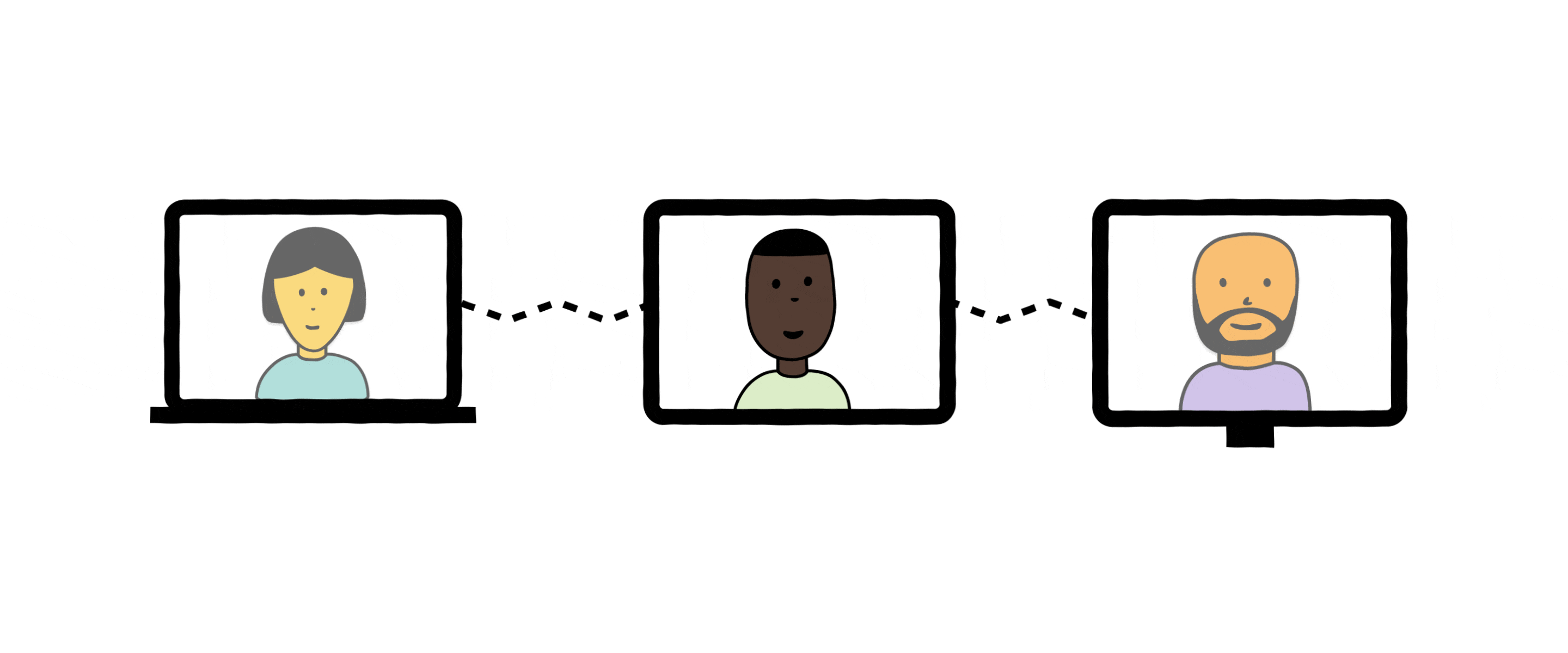Why calls with remote employees are important?

Remote work, unlike in-office work, doesn’t offer many chance interactions. You don’t bump into your colleague while passing through them or have lunch together. These interactions may seem trivial, but they are critical to team bonding, trust, and productivity.
So, how can you increase these in your remote team?
Through 1-on-1 or team calls.

4 reasons it works and will increase your team collaboration and bonding.
1. Builds stronger relationships

A 30-minute no-agenda call with your colleague will help you understand their personality/preferences and develop a rapport.
Start with scheduling a call where you discuss each other’s likes/dislikes, ways of working, communication style, and other traits. You can start the conversation by finding commonality (ask about their favorite sport, hobby, books, and more) and taking it from there.
When you hear someone's voice and have a conversation, it can be easier to develop a rapport, trust them, and understand their perspective.
It will also improve team cohesion by creating a sense of community and belonging. When team members feel connected and valued, they are more likely to be engaged and productive.
2. Facilitates problem-solving
It’s impossible to avoid discussing work during the call—that’s a plus if you use it to address problems and find creative solutions.
Of course, you shouldn’t call each other for every problem (90% of the problems can be solved through chat or emails), but a few urgent and complex ones demand face-to-face interactions to get through them.
You can engage in an open discussion—-addressing the root causes, flagging the key hurdles and brainstorming solutions for them, and start working without any delay and chaos.
3. Connects team-mates who might otherwise not communicate

Convert Kit has a bot that picks three random people from different departments for a 30-minute get-to-know-you call.
Often, these people will never talk because they work in different divisions (marketing, engineering, product, design, and HR among others) —so these chance conversations help them get a head start on building relationships.
You can also follow this practice. People will better understand your company's trajectory and progress and improve cross-team collaboration.
4. Enables feedback sharing
1-on-1 calls can be a useful forum for giving and receiving feedback. Employees can share how they like to work, appreciate each other’s efforts, or address problems to improve collaboration.
Even managers can engage in a 1-on-1 discussion—providing detailed comments on how an employee can improve themselves and contribute better.
Video calls are better suited for these types of conversations because you can see the body language, help the listener feel safe, and end the discussion in one go—hence avoiding stress for the other person.





